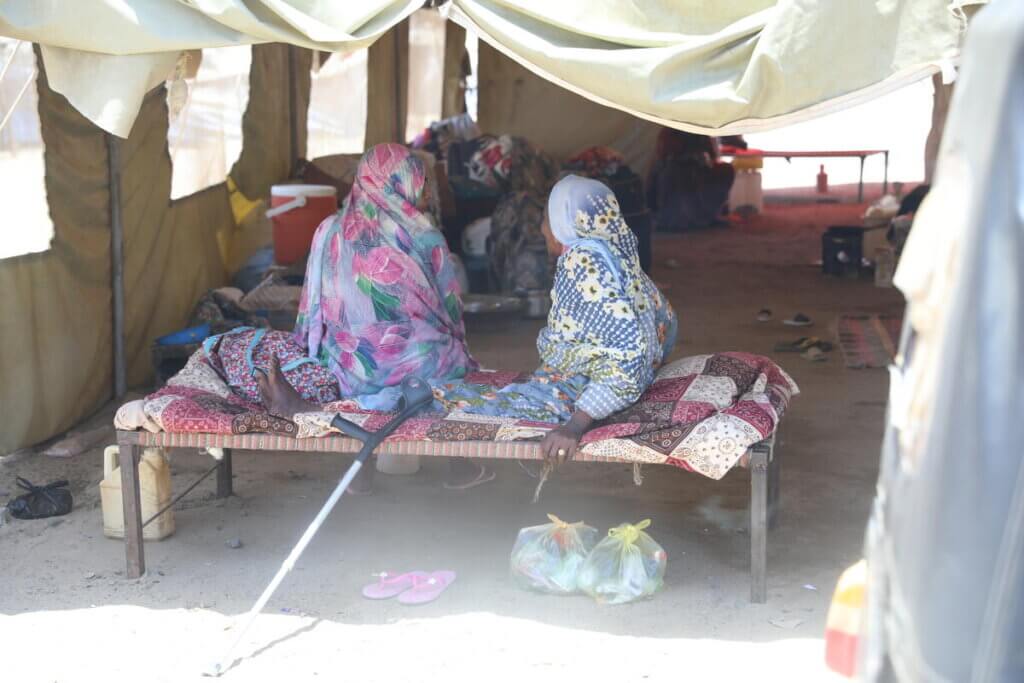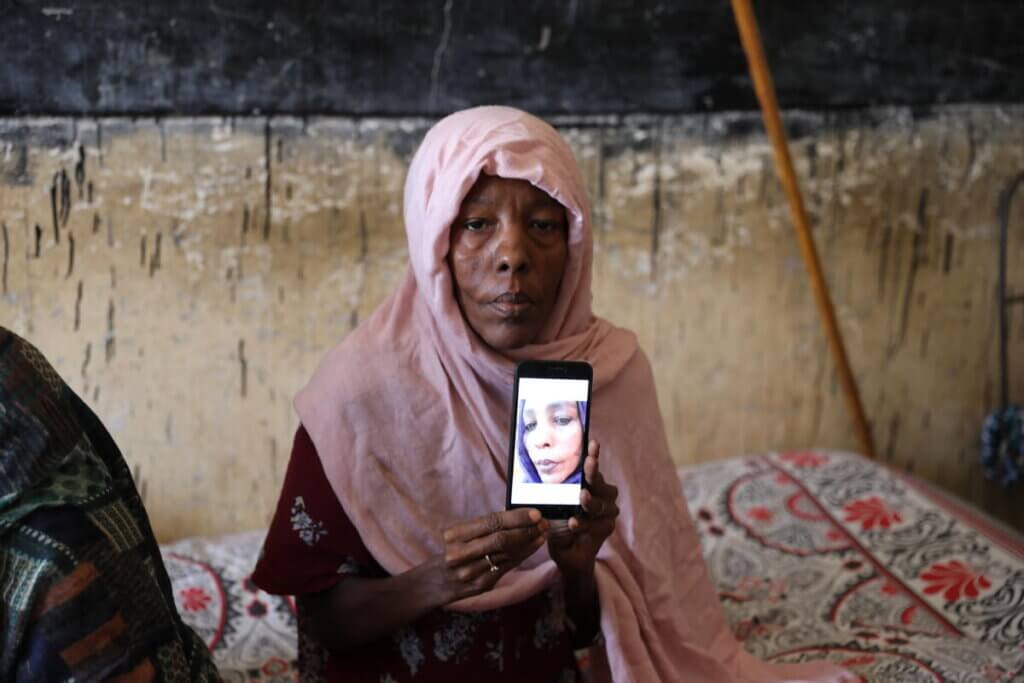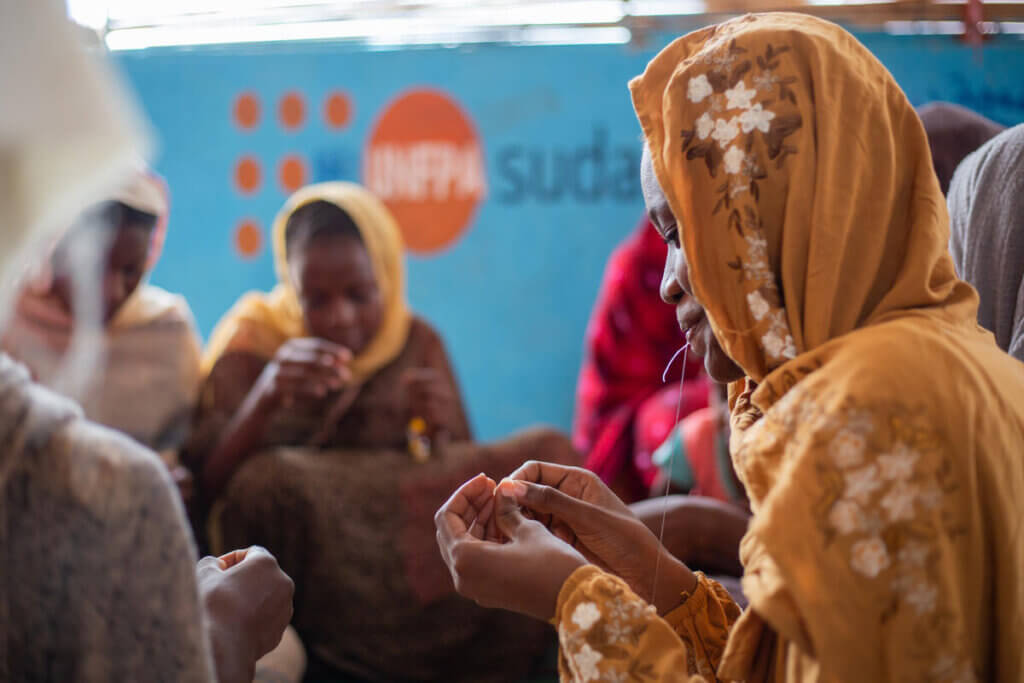14 months of war in Sudan: Millions face famine, displacement, and sexual violence

A war on the bodies of women and girls in Sudan
“I was left alone at home. I couldn’t reach out to any of my relatives because the situation was extremely tense,” Aisha, who was just 17 at the time, shared with us.
Both of Aisha’s parents had been killed by an armed militia that had taken over her neighborhood in Sudan. She was unable to flee danger due to the militia’s close watch and tried to keep herself as concealed and safe as possible. She left her house only for essential supplies and food – and for a short while, the occupying soldiers did not bother or harm her.
Then came the day when two soldiers knocked on her door.
“They asked if anyone else was in the house. Terrified, I told them I was alone. They seemed to be searching for fighters and left.”
But later that night, they burst through the front door. “They came in and pointed a gun at me. They told me not to scream or say anything – then they began to take off my clothes. One soldier held the gun while the other raped me, and then they took turns.”
For four days, Aisha endured this violence as soldiers continued to arrive and assault her. When they finally left, Aisha escaped to a friend’s house. Still processing the trauma of what she had undergone, Aisha couldn’t find the words to explain what happened to her. So, she told them nothing as they fled for another state in Sudan.
It was there that she discovered she was pregnant from the assault.
Her friend’s family refused to take her with them any further when they discovered the pregnancy. Aisha was alone and utterly terrified in an unfamiliar place. She tried to stay in a displacement camp, but even they turned her away.
“Those days were incredibly tough, and I even attempted suicide,” she shared with us.
But then, everything changed when a stranger told Aisha about a UNFPA safe space for women and girls in Kassala. “When I arrived, I saw a doctor and a psychologist. They had me sent to a hospital and gave me some money and temporary shelter.”
Thanks to our supporters, we were finally able to be there for Aisha as she reached her lowest point – but as the crisis across Sudan continues to escalate, millions more girls are enduring similar traumas. We have estimated that 8.7 million people are currently at risk of physical and sexual violence in Sudan.

Millions face famine and displacement
Fourteen months into the war in Sudan, and conditions have grown dire. Right now, there are 11 million displaced people in and around Sudan, making this the largest displacement crisis in the world.
But displacement and violence are not the only threats the people in Sudan are enduring – famine has also just been declared in the Darfur region of Sudan, affecting over half a million people in that region alone.
Other regions of Sudan are also at increased levels of food insecurity. Over half of the population (25.6 million people) are facing acute hunger, 8.5 million people (18% of the population), are on the verge of famine, and 1.2 million pregnant and breastfeeding women are facing acute malnutrition. And still, these horrific metrics are only expected to worsen as the rainy season commences and the lean season between harvests begins.
We urgently need to increase our presence in Sudan if we are to have any chance of avoiding the most catastrophic impacts of this crisis. After frequent attacks on healthcare facilities and frequent power outages, 70-80% of all health facilities in conflict areas are either inaccessible or nonfunctional. And for the 50,000 pregnant women who are expected to give birth in the next 3 months – who will likely face complicated births due to malnutrition – survival depends on access to sexual and reproductive healthcare.

How we are there for women and girls in Sudan, no matter what.
Thanks to the unwavering commitment of our supporters and our staff on the ground, we have already reached hundreds of thousands in Sudan with our lifesaving care. As of July 2024, we have:
– Reached 196,500 people with sexual and reproductive health supplies
– Deployed 52 mobile medical teams
– Assisted in 3,730 safe births
– Distributed 72,096 Dignity Kits with essentials like menstrual pads, toothpaste, a toothbrush, soap, and laundry detergent
– Operated 66 safe spaces for women and girls facing violence
– Provided 600,850 survivors with violence response services, including clinical management for rape
We have been able to be there for survivors of violence and famine, but as the emergency continues to worsen, we must increase funding to the region. If you would like to make an emergency gift to support women and girls in Sudan and emergent situations around the world, you can do so here.